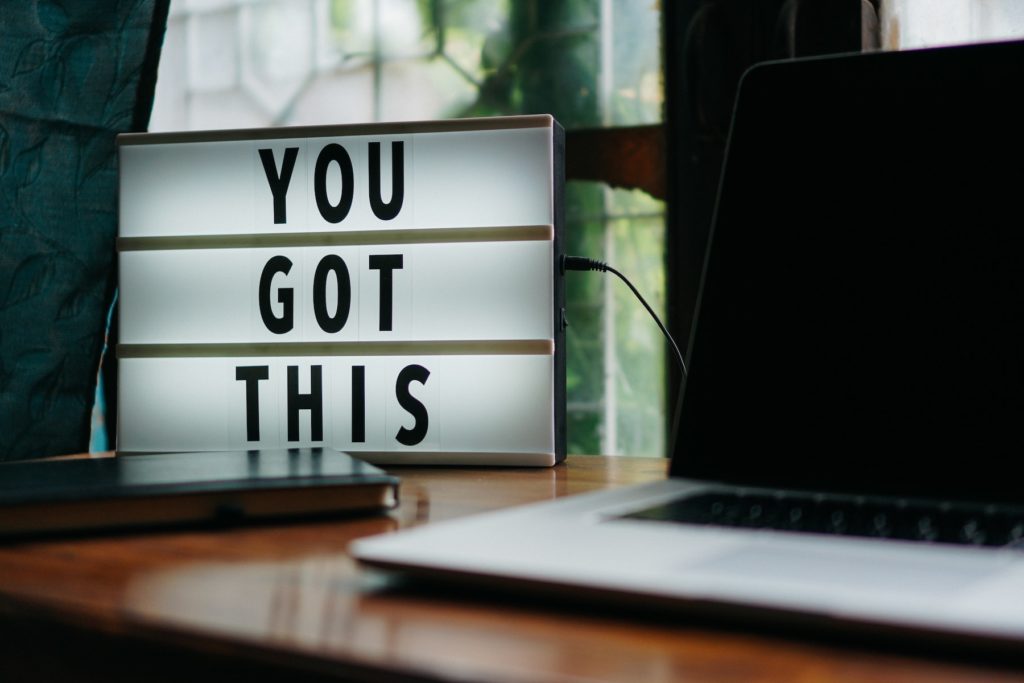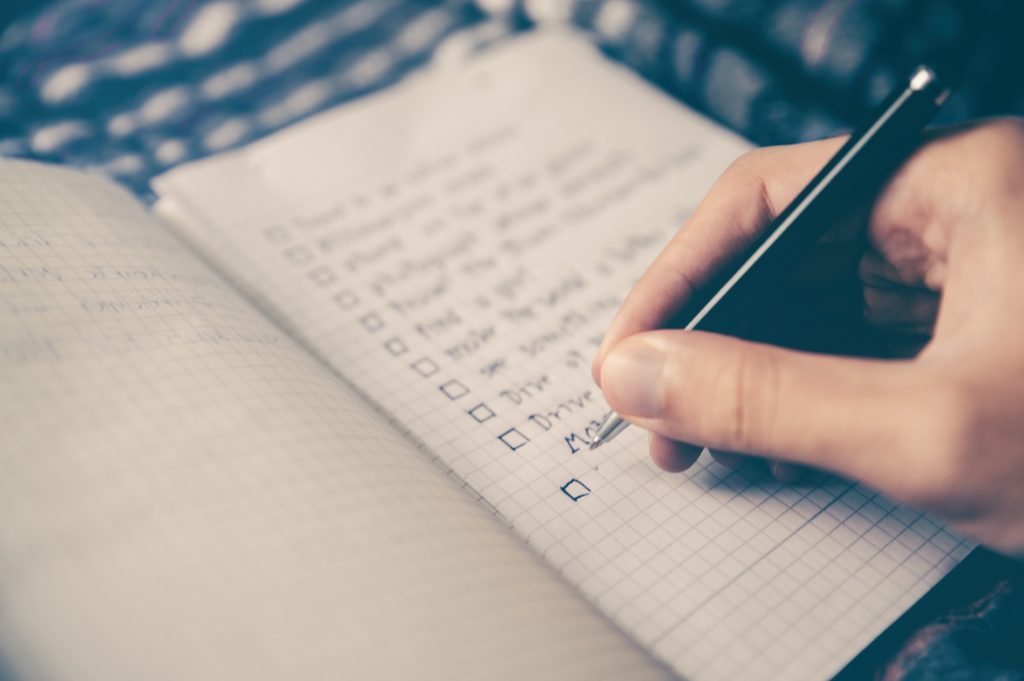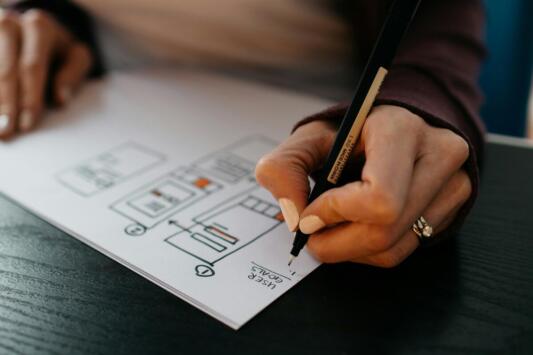6 Steps to Forming (and Keeping) Healthy Habits
Achieving Goals

When life feels like it’s spiraling out of control, it’s normal to find anything that gives us even the smallest sense of power. There are healthy and not-so-healthy ways to cope with uncertainty and chaos, but sometimes we just have to do what we can to survive. One thing that has kept me afloat during traumatic times are creating routines and forming healthy habits.
It’s taken a lot of failure and practice, but I’m finally at a place where my daily routines give me energy, peace, clarity and purpose, which is vital for my mental health. Routines help create structure, a sense of accomplishment and can let us know how we are doing mentally, physically and emotionally.
Turning new routines into habits isn’t easy, but it’s definitely not impossible. Even if you’ve attempted new routines a million times before, you can still find a routine that works for you! Here are 6 steps to forming healthy habits and ensuring you stay committed:
Understand Your Why
Before we dig into how to effectively create new routines, we have to be brutally honest and ask ourselves why these new habits and routines are important to us. When we don’t set clear intentions for our actions, it can be easy to steer off course. Think about the new routine you want to implement and ask yourself these questions:
- Why is this important to you?
- Why do you care about making this new routine a habit?
- What will happen if you don’t?
- Does this routine align with your goals and values?
- What opportunities will this routine provide?
- What feelings and emotions will these routines trigger for you?
- How do you want to feel because of this routine?
The more specific you get with Your Why, the stronger that connection will be to help you stay committed. I like to think of our Why as our accountability partner. It’s what gets us up in the morning. It’s what motivates us to show up even on the days we can barely get out of bed. Our Why keeps us grounded, even during the most untethering times.

Observe Past Routines
If there was one thing I wish I knew years ago when I started creating new routines is that you will fail and there will be habits you don’t keep. However, we can use those failures to improve for next time! So that’s my next step: without judgment, observe what didn’t work before so you can try something different this time.
If you find yourself writing down routines that you’ve tried before, this is a great opportunity to observe what prevented you from forming healthy habits last time so you do it right this time. For example, I tried to wake up early for as long as I can remember, but it wasn’t until I got to the root cause that I was able to change my approach:
Why can’t I wake up early? Because I’m too tired
Why am I too tired? Because I’m not getting to bed on time
Why am I not getting to bed on time? Because I’m eating too late, watching TV and scrolling on social media before bed
Why am I eating too late, watching TV and social media before bed? Because I thought I should have a morning routine, instead of creating a routine I wanted. I did not understand My Why and had no action plan. Getting to the root cause showed me that I didn’t have any emotional connection to this new habit – I was missing my Why!
It took me a while, but once I began to change my story around routines and implement these steps, I was able to make these routines stick for good.
Change Your Story
Something else I wish I knew back when I was exploring new routines is to check in with the stories I was telling myself. If stories aren’t benefiting you and your new goals, challenge them!
Because I had failed more times than I can recall, it was easy for me to say “I’m terrible with routines and I can’t ever commit to them.” But is that actually true? Am I really terrible? Do I have zero routines in my life? Of course not! I brush my teeth in the mornings and evenings, I go to bed at a decent time each night, I read before bed, I drink coffee in the morning while I journal (yay for morning routines!) and I meditate. Okay cool, so I CAN do routines!

If you truly want to create change in your life through healthy routines and habits (Your Why!), you’ll find a way to do so. Sometimes that starts with simply observing where our thoughts are. When you think about creating a new routine, what thoughts come to mind? If they’re self-doubting thoughts, challenge them. Practice thinking new thoughts to support the outcome you wish to create.
One of my favorite ways to introduce new ways of thinking is by saying “I am in the process of…” and filling in the blank with whatever goal you’re wishing to accomplish.
“I am in the process of creating and sticking to my new, healthy habits and routines.”
“I am in the process of becoming a morning person.”
“I am in the process of _______________________.”
Prioritize
Implementing several new routines at a time is overwhelming! Humans tend to be hardwired to resist change, so we need to be easy on ourselves, be patient and stay consistent. Part of our brain, the amygdala, detects change as a threat and releases the hormones for fear, fight or flight into our bodies. Our body is actually protecting us from change, even when change is healthy and positive.
Studies show that the average time it takes for a new behavior to become automatic is 66 days. Now, don’t let that number discourage you from achieving your goals. This timeframe can vary depending on the level of challenge/difficulty of the new habit or routine, but it helps to know about how long you should give yourself grace and patience to create a new routine.

Now that we know about how long it takes to create a new habit, let’s prioritize your new routines. Ask yourself: which one is most important for you to work on right now and why? You might choose the one that’s most important to you or the one that might be most challenging. Whichever one you choose to work on first, get excited for it!
Researchers also stated that “missing one opportunity to perform the behavior did not materially affect the habit formation process.” In other words, don’t be too hard on yourself if you mess up or forget now and again.
Take Action
If you haven’t read The Compound Effect by James Hardy yet, I highly recommend it – it changed my life. It showed me the tremendous power of consistently doing the small things right and that will eventually create big change. When I’ve attempted to create new habits and routines in the past, the bigger the change, the further from the finish line I saw myself (thanks amygdala). I kept reminding myself of how far I had to go, which eventually kept me from moving forward at all. But the real thing that kept me from moving forward was the lack of the first concrete step.
What is one micro-action you can take today that will bring you closer to your goal of habitualizing your routine? We don’t have to overcomplicate it or set unreasonable expectations. Even the smallest action still brings you closer to your end goal.
Like we talked about above, challenge any negative thoughts and combat that fear of failure with action. Action creates confidence so let’s scale down that “I have so far to go!” into small, actionable steps that will consistently bring you closer to creating new routines and forming healthy habits.
Have Accountability
One tip that helped me take action each day was to establish accountability. This could look like getting a friend, partner or family member to help you stay committed to your routine. It could be planning your action ahead of time in your calendar. It could also be setting reminders everyday when you know you’ll have time to work on it.
Frictionless Steps
But the one thing that helped me stay accountable to my new routine is eliminating the decision-making process and creating frictionless steps. When I investigated why my past attempts at creating a morning routine failed, I realized my snooze button was my block. I removed the decision-making process “Should I hit snooze or should I get up right now?” by putting my phone in the hallway so I had no choice but to physically get out of bed. Habit achieved!

Making routines and forming healthy habits doesn’t have to be as complicated as we might think. Sometimes it takes a mindset shift and a pivot into a different direction to try something different and see what we’re actually capable of. As Denzel Washington said, “If you aren’t failing, you aren’t trying.” Failure doesn’t mean we have to give up, it just means we need to try something different!
No matter how chaotic life might seem at times, we just need to take a few deep breaths and give ourselves a pat on the back because we actually do life better than we give ourselves credit for. Remember, consistently doing the little things right will create big change. Be easy, be patient but be courageous. You’re doing amazing!


